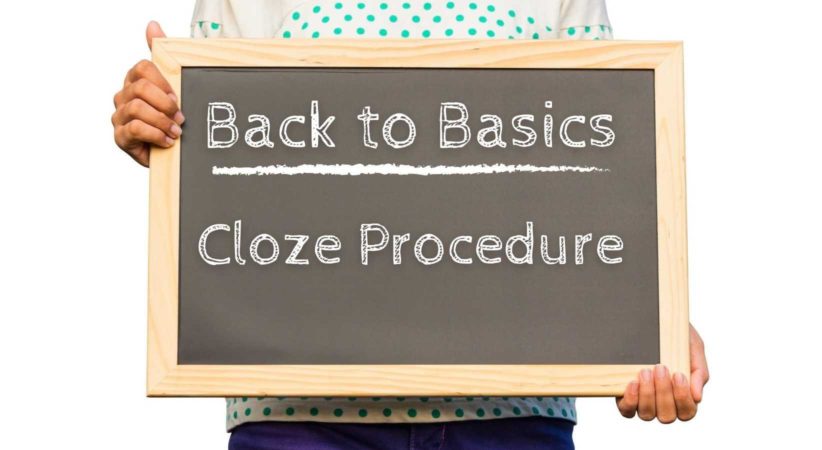
Back to Basics: Cloze Procedure
Welcome to our Back to Basics series! In this series we will be exploring some of the foundational methods, practices and terminology for teaching reading. This series is for those new to the field of literacy, beginning tutors or those who would just like a refresher. This week we are discussing the cloze procedure.
Cloze procedure, or cloze reading, is a teaching strategy that uses passages of text with missing words. The learner inserts the missing words using context clues and constructs meaning from the text. Cloze procedure can be used as an assessment technique, can help with reading comprehension, and can even be used as a studying technique. While simple in appearance, cloze is actually a sophisticated tool. By removing key words and using words in learners’ vocabulary lists, cloze forces the brain outside of the normal flow of reading. Instead, readers must “recognize the interrelationships of language and to develop an awareness of sequence, both of which could help prediction” (Cloze Procedure in the Teaching of Reading). Tutors use the cloze procedure to model problem-solving reading strategies.
“Cloze activities encourage learners to focus on meaning and use context clues to predict unfamiliar words.” – Adult Literacy Program: Virtual Tutor Training
The video below from LiteracyMidSouth offers a short introduction to cloze procedure.
Cloze was developed by a psychologist and actually started out as a readability test for texts in 1953. It was developed based on the Gestalt concept of “Closure.” Teachers quickly recognized its value and cloze has now developed into an effective reading assessment and strategy. Maze activities developed in the 1980s out of cloze. Maze also omits words but provides choices for the missing word.
Using the cloze procedure has many benefits for learners. Students must:
- recognize prediction as an essential reading strategy
- think about their reading and be critical
- realize that both non-visual information and visual information are important in reading
- understand the cycle of predicting, justifying, comparing and discussing
Check out the resources below to learn how to effectively use cloze and create your own cloze passages.
Resources
Related Blog Posts
Literacy Connects Us to Health
Read how health literacy keeps us connected to our bodies, daily lives and long-term health.
Tools and Techniques for Online Teaching
Last week we looked at some of the recent Tips for Teaching Remotely. Today, we’re sharing a collection of readings on tools and techniques for online teaching: Distance Learning: Improving …
History of the English Language
Learn how the history of English helps us understand some of the complexities of the language.
